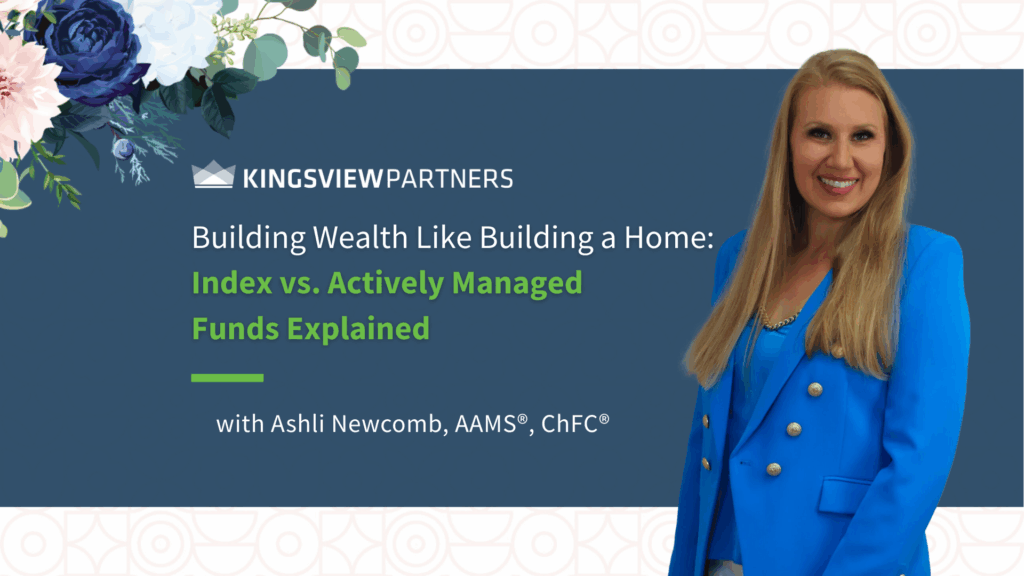In Your 50s or 60s? You’ll Want To Hear This Retirement Advice
Executive Summary
Most people enter retirement with a solid plan for their finances, but many overlook the life rhythms that truly shape fulfillment. Keith Demetriades, CFP®, CKA®, shares the five most common regrets retirees express about their 50s and 60s and explains how you can avoid them by treating this season as a window of opportunity. If you’re in your midlife years, these insights can help you reclaim time, focus, and purpose!

Want to watch an in-depth exploration of this topic?
Check out this video on my YouTube channel, @SavvySteward: In Your 50s or 60s? You’ll Want To Hear This Retirement Advice
Take the free “How Much Do I Need To Retire” Quiz here:
https://secure.kingsview.com/keith-savvy-steward-quiz-youtube#q1
In Your 50s or 60s? You’ll Want To Hear This Retirement Advice
If you want to know what really matters in retirement, don’t ask someone who’s planning for it—ask someone who’s already living it.
Over the years, I’ve had countless conversations with clients in their 70s and 80s—people who built successful careers, raised families, and made thoughtful financial decisions. But when I ask them what they would do differently in their 50s or 60s, I hear the same regrets again and again. And if you’re in that stage of life right now, their experience can offer you something they didn’t have: a second chance in real time.
What do retirees regret most about their 50s and 60s?
One of the most common themes is the feeling that too much time was spent chasing achievement, and not enough was spent building meaning. Many retirees look back and realize that while they were advancing in their careers, they weren’t investing enough in their personal identity or sense of purpose outside of work.
Another recurring regret is the absence of real rest. For years, they stayed busy, working long hours, handling responsibilities, staying constantly “on”, expecting retirement to be the moment they’d finally slow down. But by the time it arrived, they were worn out and needed time just to recover.
Relationships are another area people wish they’d nurtured more intentionally. When life is full, it’s easy to let connection slip to the margins. For many, friendships and even family time became sporadic or surface-level. Later in life, some found themselves trying to rebuild what had faded—and sometimes found it was too late.
Many also regret putting their own lives on hold for too long. The hobbies, creative outlets, and personal interests that once brought joy were pushed aside to make room for everything else. When retirement finally offered the time to return to those things, some didn’t know where to begin. And perhaps the most bittersweet realization?
They didn’t recognize the best years when they were happening. In hindsight, their 50s and early 60s held more freedom, health, and flexibility than they gave themselves credit for. But the days filled up with responsibilities, and the window quietly closed.
Why is your 50s–60s window more valuable than it seems?
It’s easy to think the best freedom comes after retirement, but for many, the most flexible and powerful years are the ones just before. You may not be fully retired yet, but the kids are grown, your finances are more stable, and your health still gives you room to travel, explore, and make meaningful changes.
The alignment of time, money, and health doesn’t always last. That’s why this stage deserves more attention than it usually gets. Instead of waiting for “later,” this is the season to lean in—return to a hobby, reconnect with loved ones, take that trip, or try a new rhythm for living. The opportunity is real, but it’s also temporary.
How can your calendar signal future regret?
One simple way to evaluate how you’re using this season is to look at your calendar. Does it reflect your priorities—or just your obligations?
Too often, the days are packed with tasks, appointments, and to-dos that feel urgent but offer little fulfillment. If you’re not careful, that pattern carries straight into retirement, leaving you with open time but no clear sense of what to do with it.
The clients who transition most smoothly into retirement are the ones who already practiced protecting time for what matters: relationships, rest, reflection, and creativity. They didn’t wait until work ended to figure out how to live well. They established habits and patterns ahead of time and carried them into the next chapter.
Why does establishing a life rhythm matter before retirement?
A financial plan can tell you how to retire—but it can’t tell you how to live once you do. That part takes clarity, structure, and rhythm.
I’ve seen it over and over: people who just wanted out of their job spent the first year of retirement trying to figure out what came next. But those who had already built life-giving routines—whether that meant regular time with friends, a spiritual practice, community involvement, or simply quiet mornings—entered retirement with purpose, not just free time.
You don’t build those rhythms after you retire. You build them now, so they carry forward when your work slows down.
What small changes can you make now to avoid bigger regrets later?
You don’t need a total overhaul to realign your life. Start by choosing one or two things to let go of; obligations that drain your energy but add little value. Make room for something that restores you, whether it’s a creative project, a hobby, a phone call to someone you’ve lost touch with, or an hour of solitude.
Psalm 90:12 says, “Teach us to number our days, that we may gain a heart of wisdom.” These years aren’t just a bridge to retirement. They’re part of the life you’re called to live well, right now.
Be a savvy steward. Make your life count.
Contact Information
Keith Demetriades, CFP®, CKA®, helps individuals, families, and organizations integrate faith-based principles into their financial planning. Oikonomia is a foundational concept in his practice, reflecting his commitment to stewardship, purpose, and making your life count.
For more information, contact Keith at (806) 223-1105 or visit https://www.kingsview.com/advisor/keith-demetriades/.
Disclaimer: The information provided in this blog is for educational purposes only and should not be considered financial advice. Please consult a qualified financial advisor to discuss your specific situation and needs. Past performance does not indicate future results, and all investments carry risks, including potential loss of principal. Any financial product or strategy references are purely illustrative and should not be construed as endorsements or recommendations.



